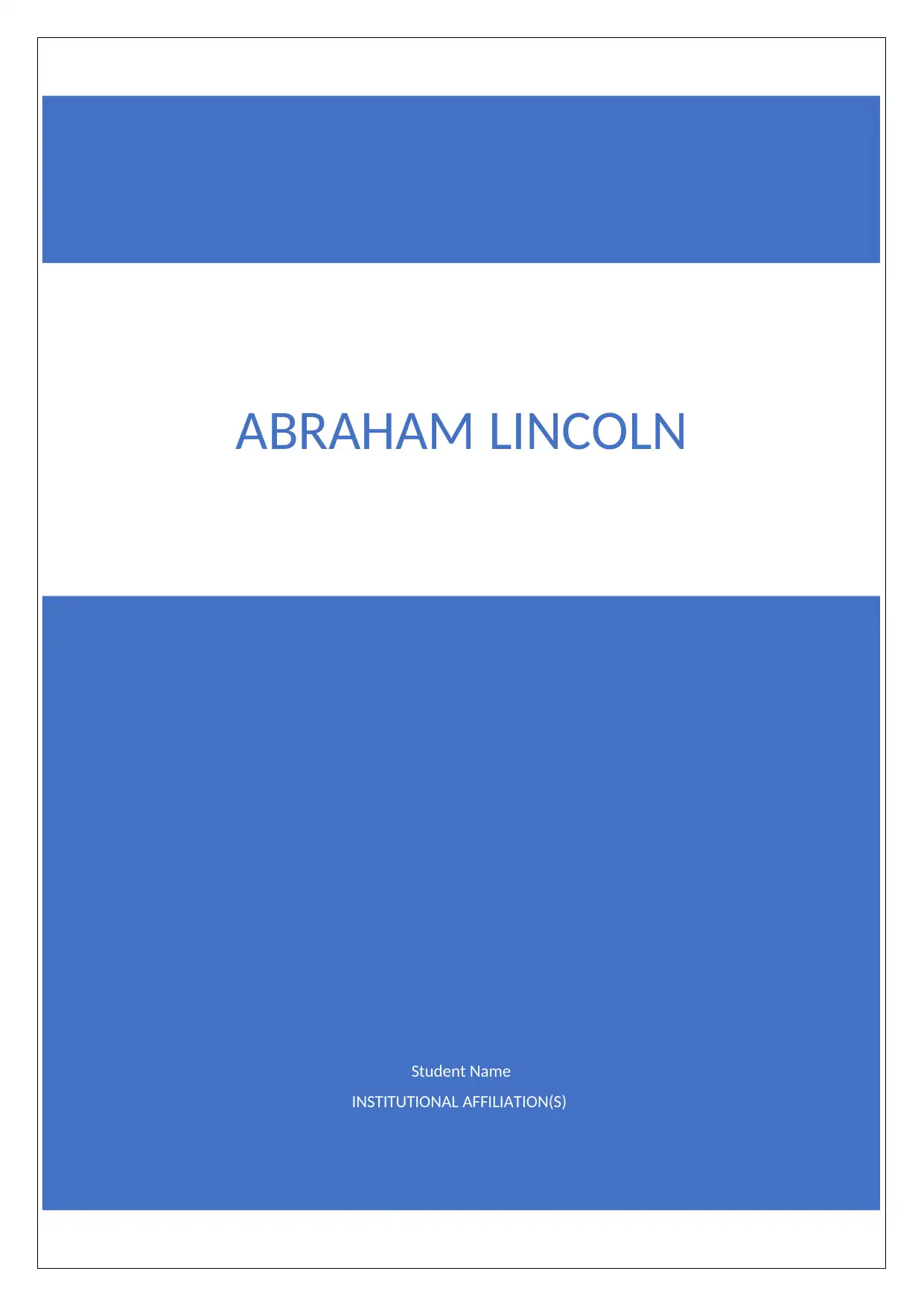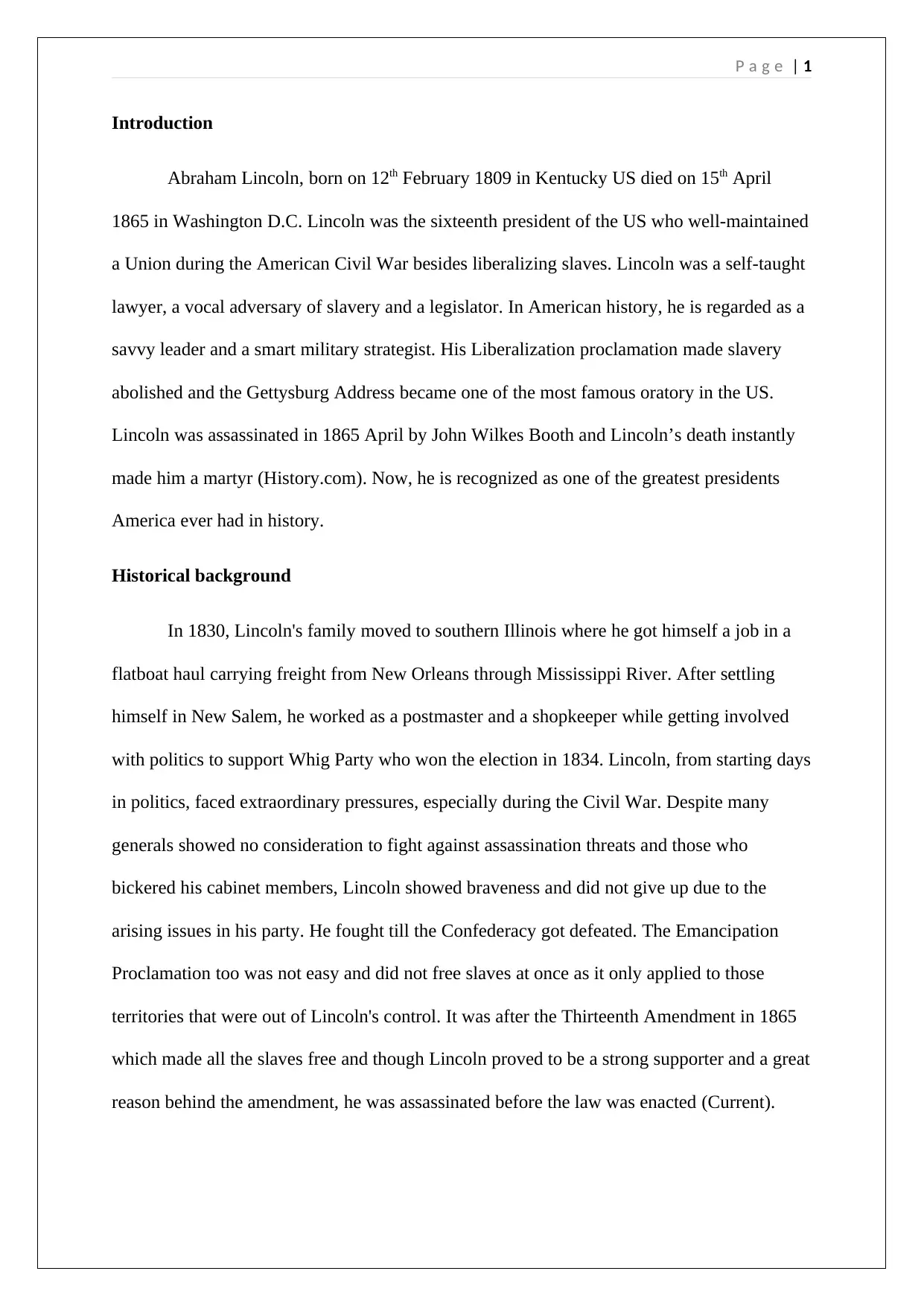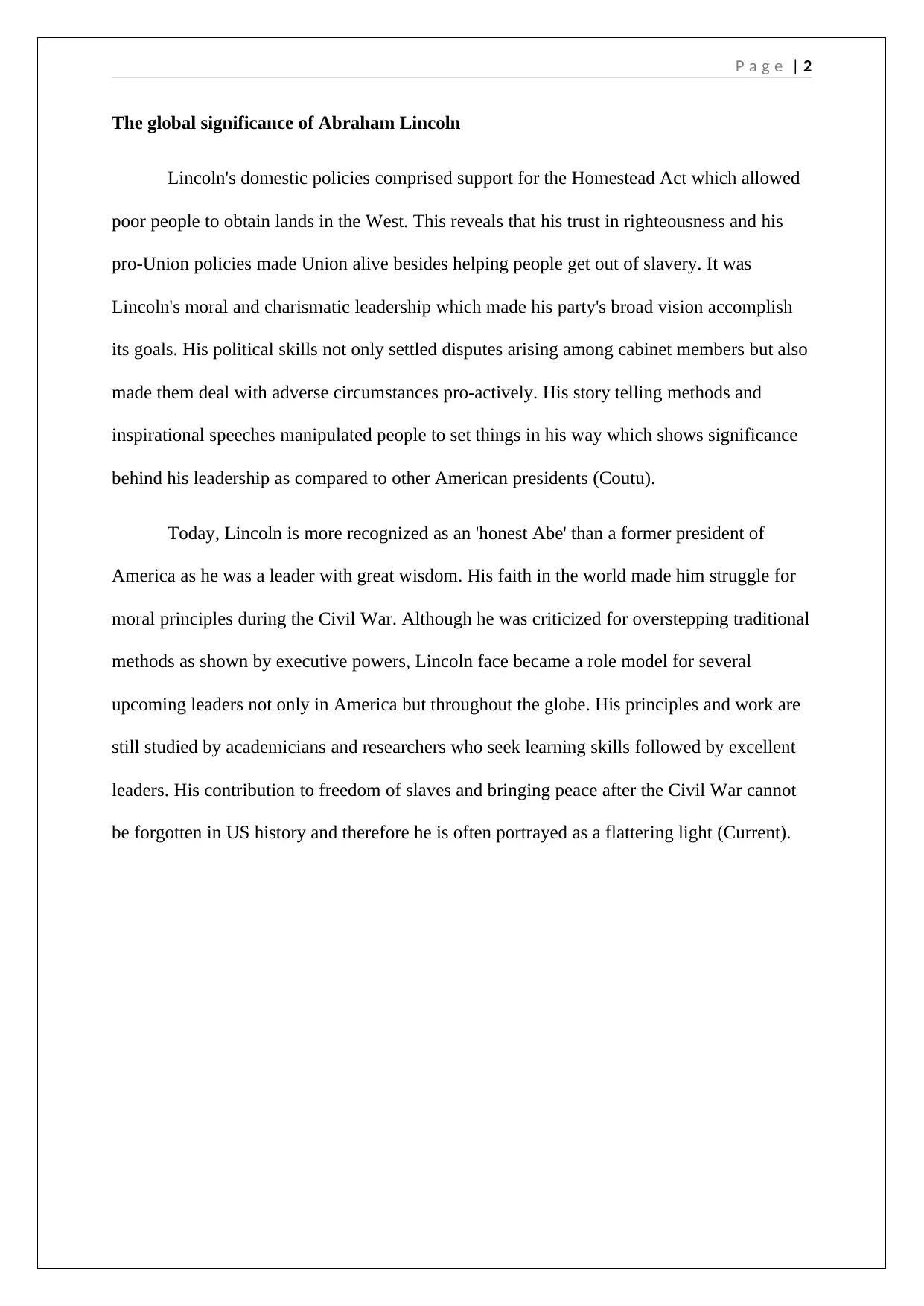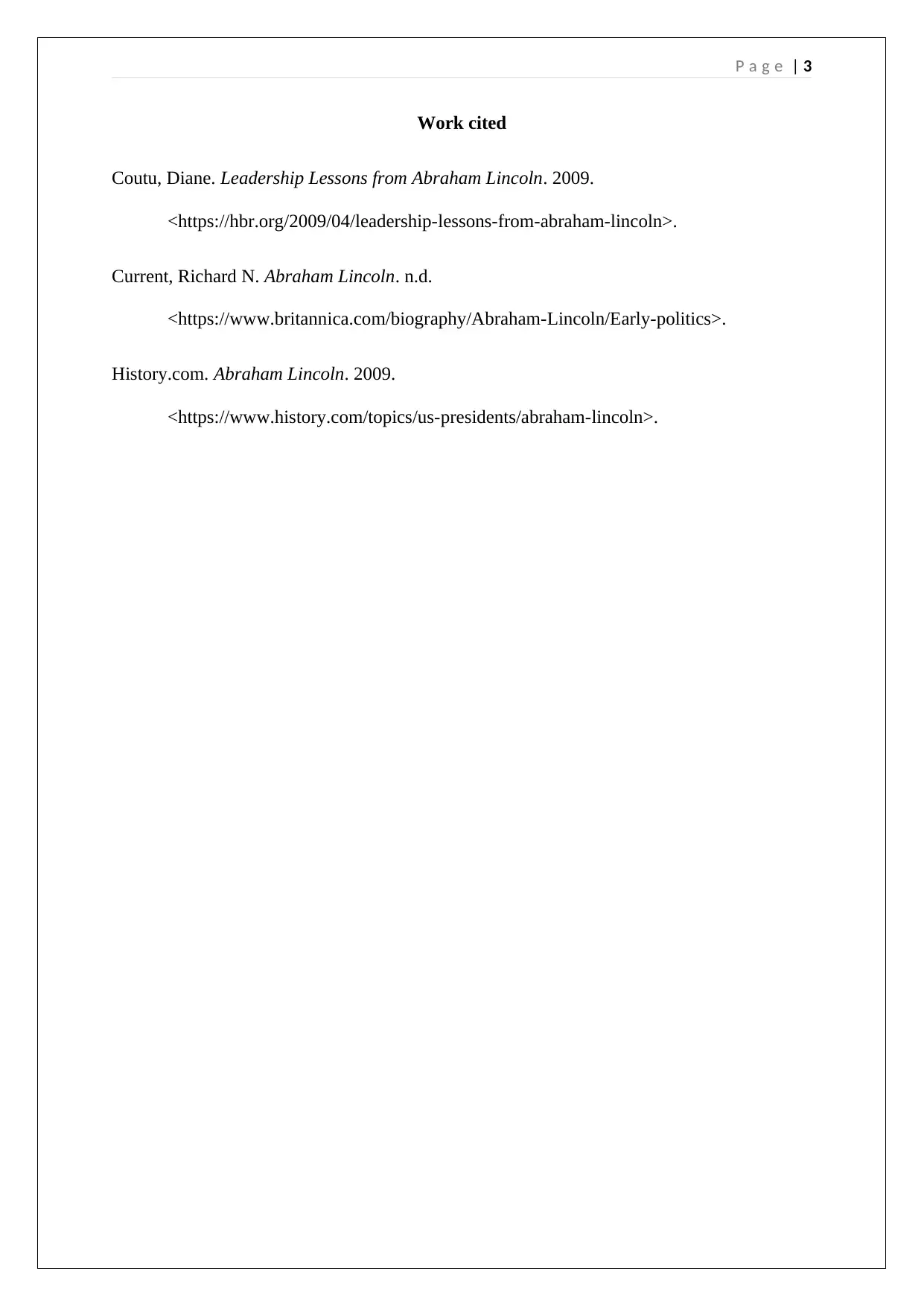Abraham Lincoln: Analyzing His Presidency, Policies, and Significance
VerifiedAdded on 2022/09/08
|4
|648
|11
Essay
AI Summary
This essay provides a comprehensive overview of Abraham Lincoln, the 16th President of the United States, exploring his life, leadership, and lasting impact on American and global history. It delves into his early life, political career, and the extraordinary pressures he faced, particularly during the Civil War. The essay highlights Lincoln's role in the Emancipation Proclamation, his support for the Homestead Act, and his moral and charismatic leadership. It analyzes his political skills in managing cabinet disputes and adverse circumstances, as well as his storytelling methods and inspirational speeches. Furthermore, it discusses Lincoln's significance as a role model for leaders worldwide, his contributions to the freedom of slaves, and his role in bringing peace after the Civil War, emphasizing his enduring legacy as an 'honest Abe' and a leader with great wisdom. The essay draws from various sources to provide a well-rounded understanding of Lincoln's presidency and his enduring impact on American history.
1 out of 4










![[object Object]](/_next/static/media/star-bottom.7253800d.svg)